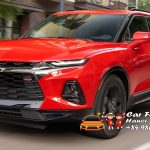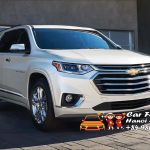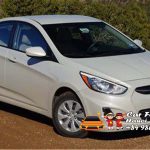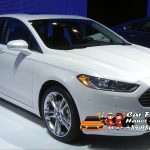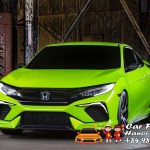Tesla, Inc., founded in 2003 by Elon Musk, JB Straubel, Ian Wright, Martin Eberhard and Marc Tarpenning, is an American company that manufactures and develops electric vehicles, energy storage systems, and products. solar energy related products. With a mission to deliver sustainable energy solutions, Tesla has become one of the leading brands in the electric vehicle industry.
Tesla Products and Services
Tesla is famous for its high-end electric vehicles, possessing beautiful designs, powerful features and impressive performance. Tesla’s electric vehicle lineup includes Model S, Model 3, Model X and Model Y, serving the needs of a wide variety of customers.
In addition, Tesla offers solar-related products and services, such as Solar Roof and Powerwall. These are solutions that help homeowners install integrated solar systems on the roof and store energy for use when needed.
Technological breakthroughs and development of Tesla
Tesla continues to invest in research and technology development, creating important breakthroughs in the electric vehicle industry. Some of Tesla’s outstanding technological breakthroughs include:
Battery system: Tesla has developed unique battery technology that allows its electric vehicles to last longer and travel longer distances than other electric vehicles on the market.
Autopilot technology: Tesla pioneered the development of autonomous driving technology (Autopilot), which helps reduce traffic accidents and enhance driver safety.
Supercharger technology: Tesla has built a fast charging network (Supercharger) globally, helping users to charge electric vehicle batteries quickly and conveniently.

Tesla’s growth strategy focuses on a few key factors, helping it continue to strengthen its position as a leader in the electric vehicle industry:
Reducing product costs: Tesla is constantly working to reduce production and product costs to make electric vehicles more popular and accessible. Typically, the introduction of the Model 3, a mid-size electric vehicle with a more reasonable price compared to its previous high-end models.
Supercharger network expansion: Tesla continues to invest in building and expanding its global network of Supercharger charging stations, enabling users to quickly and easily charge their vehicle batteries.
Developing international markets: Tesla expands its market and builds production plants in many countries, such as Germany and China, to increase production capacity and meet the growing needs of customers around the world. bridge.
Strengthening technology research and development: Tesla is constantly investing in technology research and development to improve electric vehicle performance, develop autonomous driving technology, and seek sustainable energy solutions .

Product Line Expansion: Tesla has been expanding its product line to serve a wider range of customers. For example, it introduced the Model Y, a compact electric SUV, and plans to produce the Semi electric truck and Cybertruck electric pickup in the near future.
Strategic Partnerships and Alliances: Tesla also looks for opportunities to work with partners in the automotive and energy industries to enhance competitiveness and share risks. The company has cooperated with many other companies such as Panasonic, Daimler and Toyota in the field of battery manufacturing, technology and product development.
Contact Us:
Car For Rent Hanoi VietNam
https://zalo.me/0986244358
Here’s an overview of Tesla’s key products, including electric vehicles and energy solutions:

Tesla Model S: Introduced in 2012, the Model S was Tesla’s first luxury sedan electric vehicle. The Model S is known for its luxurious design, ample space, impressive performance, and fast charging times. In particular, the Model S can reach a top speed of up to 200 mph and has a range of up to 390 miles on a full charge.
Tesla Model 3: Model 3 is a midsize electric vehicle introduced by Tesla in 2017, aiming to provide a high-quality electric vehicle solution at a more affordable price. Model 3 is appreciated for its modern design, safety features, Autopilot autonomous driving technology and range of 220 to 358 miles on a full charge.
Tesla Model X: Model X is Tesla’s first electric SUV, launched in 2015. Featuring unique Falcon Wing doors, Model X offers ample space for up to 7 people, powerful performance. and top safety features. The Model X can run from 237 to 341 miles on a full charge.

Tesla Model Y: Model Y is a compact SUV introduced by Tesla in 2020, to meet the growing demand of the electric vehicle market. The Model Y inherits many features and design from the Model 3, provides comfortable space for up to 7 people and can go from 244 to 326 miles on a full charge.
Tesla Solar Roof: Solar Roof is Tesla’s unique solar solution, designed as a roof tile to replace traditional solar panels. Solar Roof not only provides clean and sustainable energy but also preserves the aesthetic beauty of the house.
Tesla Powerwall: Powerwall is Tesla’s home energy storage system

Tesla: The Future of Electric Vehicles
Tesla is a company that has revolutionized the automotive industry with its innovative electric vehicles. Tesla’s mission is to accelerate the world’s transition to sustainable energy by producing cars that are not only environmentally friendly, but also fun to drive, safe, and smart.
In this blog post, we will explore some of the features and benefits of Tesla’s electric vehicles, as well as some of the challenges and opportunities that the company faces in the future.

What Makes Tesla’s Electric Vehicles Different?
Tesla’s electric vehicles are different from conventional cars in many ways. Here are some of the key differences:
- Powertrain: Tesla’s electric vehicles use an electric motor and a battery pack to power the car, instead of an internal combustion engine and a fuel tank. This means that Tesla’s cars have zero tailpipe emissions, and can be charged from various sources of electricity, such as solar panels, wind turbines, or the grid. Tesla’s cars also have a regenerative braking system, which recovers some of the energy that would otherwise be lost when braking, and uses it to recharge the battery.
- Performance: Tesla’s electric vehicles have impressive performance capabilities, such as high acceleration, top speed, and range. For example, the Model S can go from 0 to 60 mph in as little as 1.9 seconds, reach a top speed of 200 mph, and travel up to 390 miles on a single charge. Tesla’s cars also have a low center of gravity and a balanced weight distribution, which enhance their handling and stability.
- Technology: Tesla’s electric vehicles are equipped with advanced technology features, such as a touchscreen display, a digital dashboard, wireless software updates, and internet connectivity. Tesla’s cars also have a suite of sensors, cameras, and radar that enable them to perform various autonomous driving functions, such as lane keeping, adaptive cruise control, automatic parking, and self-driving on highways. Tesla is constantly improving its software and hardware to make its cars more intelligent and capable.
- Design: Tesla’s electric vehicles have a sleek and futuristic design that reflects their innovation and vision. Tesla’s cars have a minimalist and spacious interior, with no buttons or knobs, and a large glass roof that provides a panoramic view. Tesla’s cars also have a distinctive exterior, with a smooth and aerodynamic shape, LED headlights and taillights, and a retractable door handle.

What Are the Benefits of Tesla’s Electric Vehicles?
Tesla’s electric vehicles offer many benefits for both the owners and the society. Here are some of the main benefits:
- Environmental: Tesla’s electric vehicles help reduce greenhouse gas emissions and air pollution by using clean energy instead of fossil fuels. According to Tesla’s website, its cars have saved over 4 billion kilograms of CO2 from being released into the atmosphere since 2012. Tesla also aims to use renewable energy sources for its manufacturing and charging facilities, as well as recycle its battery materials at the end of their life cycle.
- Economic: Tesla’s electric vehicles help owners save money on fuel and maintenance costs by using electricity instead of gasoline. According to Tesla’s website, its cars can save owners up to $10,000 over five years compared to an average gas car. Tesla also offers incentives such as tax credits, rebates, and free access to its network of Superchargers, which are fast-charging stations located across the world.
- Social: Tesla’s electric vehicles help improve safety and convenience for drivers and passengers by using technology and automation. According to Tesla’s website, its cars have achieved the lowest probability of injury of any car ever tested by the US government. Tesla also claims that its self-driving features can reduce human error and traffic accidents by up to 90%. Tesla also provides entertainment and comfort options for its customers, such as streaming music and video services, heated seats and steering wheel, and voice control.

What Are the Challenges and Opportunities for Tesla in the Future?
Tesla faces many challenges and opportunities in the future as it continues to grow and innovate in the electric vehicle market. Here are some of the main ones:
- Competition: Tesla faces increasing competition from other automakers that are also developing electric vehicles or hybrid models. Some of these competitors include Toyota, Volkswagen, Ford, GM, Hyundai, and BMW. Tesla will have to maintain its edge in innovation, quality, and customer satisfaction to stay ahead of the game. Tesla will also have to deal with the challenges of scaling up its production, distribution, and service network to meet the growing demand for its cars.
- Regulation: Tesla faces various regulatory hurdles and uncertainties in different countries and regions that affect its operations and sales. Some of these issues include safety standards, environmental regulations, trade policies, tax incentives, and legal disputes. Tesla will have to comply with the local laws and regulations, as well as lobby for favorable policies that support its vision and mission. Tesla will also have to adapt to the changing political and social climate that may influence consumer preferences and behaviors.
- Innovation: Tesla has many opportunities to innovate and expand its product portfolio and market reach in the future. Some of these opportunities include developing new models of electric vehicles, such as trucks, buses, motorcycles, and airplanes; creating new battery technologies that improve performance, cost, and sustainability; exploring new energy sources and solutions, such as solar roofs, powerwalls, and microgrids; and advancing its self-driving capabilities and services, such as robo-taxis, car-sharing, and ride-hailing.

Conclusion
Tesla is a company that has changed the face of the automotive industry with its electric vehicles. Tesla’s cars are not only eco-friendly, but also fun to drive, safe, and smart. Tesla’s cars offer many benefits for both the owners and the society, such as reducing emissions, saving money, and improving safety and convenience. Tesla also faces many challenges and opportunities in the future as it competes with other automakers, navigates through various regulations, and innovates new products and markets. Tesla is a company that is driven by a vision of a sustainable future for humanity.
I hope you enjoyed reading this blog post about Tesla. If you are interested in learning more about Tesla or buying one of its cars, you can visit its website at https://www.tesla.com/. Thank you for your attention.


